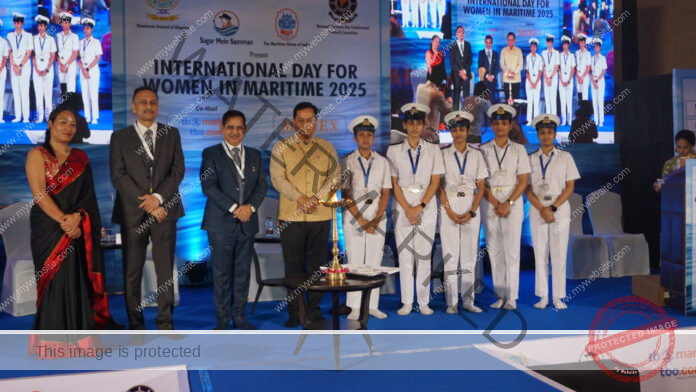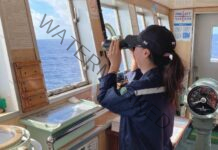India’s maritime sector has witnessed a never before 649 % surge in strength of women seafarers in past one decade. As per official records, the count of seafarers of 341 in 2014 rose to 2557 in 2024, recording a phenomenal growth.
Since 2014, about 2,989 women seafarers have received financial assistance also. Due to government’s sustained effort to encourage women to explore maritime sector for a fruitful career, the number of women seeking financial assistance has increased from a mere 45 in 2014-15 to 732 in 2024-25. Official reports revealed, the engagement of Indian women seafarers on Indian and foreign-flagged ships was witnessing a continuous rise.
According to Union Minister Sarbananda Sonowal, “Empowering women in maritime is not just about equity—it’s a strategic necessity. Their leadership brings innovation, strength, and a more sustainable future for the sector. Our Nari Shakti is a fundamental pillar of the new Bharat, for their incredible contribution in the nation building cause. Under the dynamic leadership of Prime Minister Narendra Modi, our task is cut out. Sagar Mein Samman is one such initiative to create a conducive environment for more and more women to join the maritime sector. India witnessed a remarkable 739% surge in registered women seafarers — from 1,699 in 2015 to 14,255 in 2024, marking a decade of steady progress in Maritime Gender Inclusion, a key idea of PM Narendra Modi towards honing our impeccable talent pool with Nari Shakti.”
During the celebrations of ‘International Day for Women in Maritime,’ the Union Minister also honoured and felicitated 10 outstanding women of the Indian maritime sector which include Sumita Banerji, Bharati Bhandarkar, Kalpana Desai, Poonam Nagpal, Yen Pinto, Archana Saxena Sangal, Rupali Raj Joshi, Capt Deepti Singh and Amarjeet Rewari.
As per Sonowal, “The launch of “Sagar Mein Samman” policy framework shows our commitment to the mental, physical, and professional well-being of women seafarers. This comprehensive policy addresses empowerment, leadership, inclusivity, safety, skill development, and dismantling of gender-based barriers in maritime profession. We have ambitious target of 12% female representation in technical maritime roles by 2030, aligning directly with national objectives.”






























